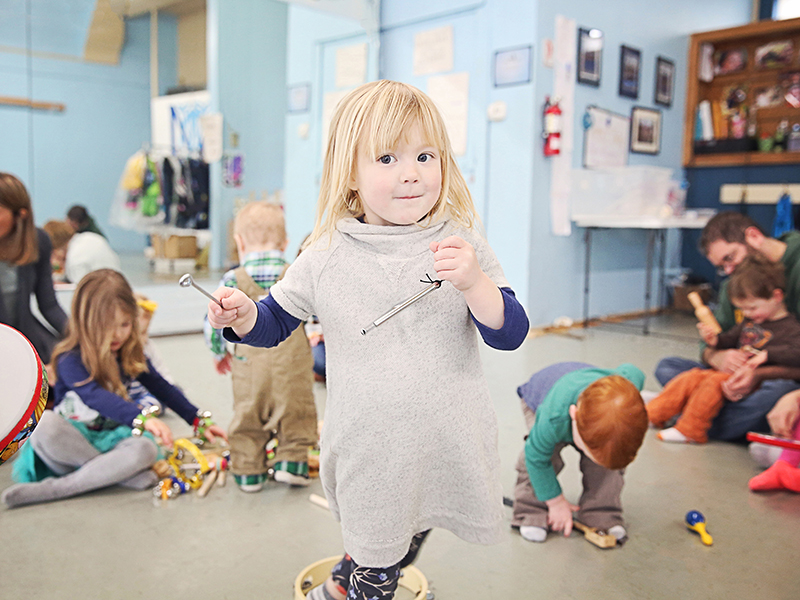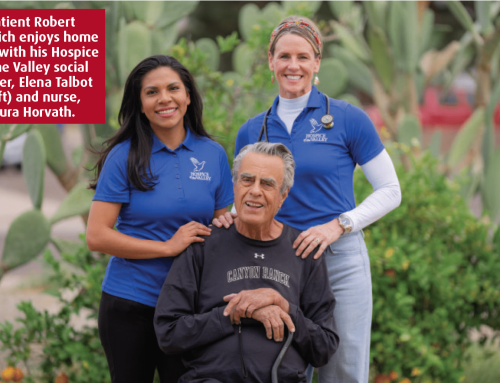By Jennifer Marshall
Music for babies? At first thought, this might seem an odd concept; after all, they’re newborns. What do they know about music?
“Babies are making like a billion neuro connections those first years of life,” said Kathy Rowe of Music Together, “and music helps their development socially and emotionally.”
For years, pediatricians and other health experts have touted the benefits of reading to babies and engaging them in educational play. In fact, we know even the sheer physical contact of holding our little ones for extended periods of time is beneficial to their total development.
Rowe, an Arizona native, holds a Master’s in Music Education. In 1997, while residing in Chicago, she attended a Music Together class with her baby. From this first class, Rowe knew this was where and how she wanted to teach music going forward. When she and her family relocated back to Phoenix, there was no Music Together program in the Valley, so she established her own with her first class being held in her living room in 1999.
Today, her business has grown to include a studio—Kids.Play.Music.—near Shea Boulevard and Highway 51, and she also teaches at nine other locations around Phoenix. When she began the program, she was just a solo operation; now, she has eight teachers on her team.
Music Together is a worldwide program for babies to five-year-olds where parents and baby can sing and dance while making and feeling the music together. Rowe holds a license to teach the program.
“One of Music Together’s principles is that all children are musical,” she said. “They can feel the beat and tone, and they can dance. They’re born with musical abilities, but they need to be nurtured.”
Rowe considers her business a “community of music makers” where learning, sharing and enjoying music is a group experience. While all babies and kids benefit and grow from the Music Together program, kids progress at all different levels and speeds. What’s important is to keep it fun, and progress follows naturally on its own.
“Music aptitude is developmental,” said Rowe. “It’s not set until you’re around age nine.”
Parents are crucial to the success and growth of their kid’s musical development. Moms and dads are encouraged to practice music at home with their children. In fact, the parental influence is so strong, Rowe even teaches an adult guitar class ensuring music plays on in the home. As they are dependent on their parents as their primary caregivers, babies emulate whatever they do. Consequently, when mom and dad are excited to practice music, their child will want to do so as well.
Rowe says she’s most excited about her Mixed-Age Classes, which are for infants up to five-year-olds and their parents and makes up the bulk of the repertoire of classes offered by Music Together. This group experience expands kids’ social intelligence along with supporting their language development.
“I’m excited this is a fun activity that really integrates the entire brain at the same time,” she said.
A Babies Only Class for those eight months and younger is also offered. Moms and dads who enroll their children in this program, discover that their kids are more ready emotionally to start school when the time comes, and they often enter with a stronger math brain.
Another course, Rhythm Kids, is a world music class focusing on drumming. The four and five-year-olds attend the program with their parents while the kindergarteners through second graders come without their parents.
Music Together con Espanol is the Mixed-Age Class that’s taught half in English and half in Spanish. This exciting, bilingual program helps give students a head start on learning a foreign language.
For families who are perplexed as to what is the right class for their child, they can sample classes before committing to one. Classes are 45 minutes each, and they’re held for 10 weeks. And no worries; make ups are available for missed classes. To read more about the program, check out the Music Together website at: www.musictogetherinphx.com.
Rowe thinks of her music classes as a “musical vitamin of sounds in their ears” as children receive music in different tonalities and meters.
“You never see an unhappy child who is singing,” said Rowe, “music is good for their soul.”





